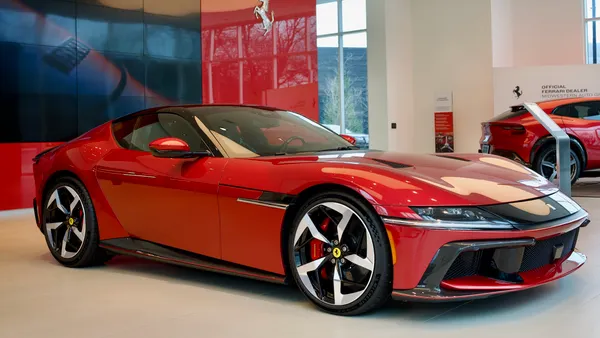Editor's note: This story is part of the WardsAuto digital archive, which may include content that was first published in print, or in different web layouts.
DETROIT – Younger consumers are much more enamored than their parents are with the idea of having fully automated cars taking them places.
This perhaps is not shocking to Baby Boomers skeptical of the idea of getting in a car without a driver or steering wheel, but it does throw a monkey wrench into predictions saying robot cars are the perfect solution for senior citizens getting too old to drive. It also complicates the plans of automakers focusing self-driving efforts on expensive luxury cars young people can’t afford.
Trust in automation technology is very much age dependent, with younger consumers having notably higher levels of confidence in the technology than do their older counterparts, according to the J.D. Power 2016 U.S. Tech Choice Study Choice Study, released here Thursday at an Automotive Press Assn. meeting.
More than half of Gen Y vehicle owners (56%) born from 1977 to 1994 and Gen Z (55%) born from 1995 to 2000 say they trust self-driving technology, the study says. However, only 41% of Gen X owners born from 1965 to 1976, 23% of Boomers born from 1946 to 1964 and 18% of pre-Boomers agreed.
“The level of trust is directly linked to the level of interest in new technology among automobile buyers,” says Kristin Kolodge, executive director-Driver Interaction & HMI Research at J.D. Power.
The study suggests that for automakers to reach high-volume sales of fully autonomous vehicles they should focus on the younger demographics that are most accepting of the technology and allow older generations more time to be exposed gradually to the benefits and market readiness of future self-driving products.
“Acceptance can be increased with exposure over time and experience with automated technologies,” Kolodge says. “But trust is fragile, and can be broken if there is an excessive number of incidents with automated vehicles.”
Gen Y and Gen Z vehicle owners also are twice as likely as Gen X and five times as likely as Boomers and pre-Boomers to show interest in alternative mobility strategies such as sharing/co-ownership, journey-based ownership and mobility on demand.
However, automakers recently have shown they are reacting to Gen Y demands rather than Baby Boomer wariness with a flurry of major new investments in vehicle-sharing companies and technologies.
Gen Y, comprised of about 80 million people, is the largest generation in history and it is predicted to become the largest vehicle-buying segment in the next two or three years, Kolodge says.
The study, now in its second year, examines consumer awareness, interest and price elasticity of various future and emerging technologies by vehicle make and consumer demographic. It was conducted in February and March and is based on an online survey of more than 7,900 consumers who purchased or leased a new vehicle in the past five years.









